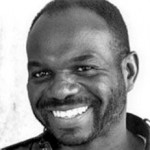When Grammy winner and global AIDS ambassador Alicia Keys visited a children’s HIV clinic in Mombasa, Kenya last Thursday, it was supposed to be a private trip, some discreet face time with children getting meds through the U.S.-based Keep a Child Alive (KCA). But word got out, of course, so fans and reporters swarmed the Coast Provincial Hospital to catch a glimpse of the 26-year-old singer’s signature braids—and HIV’s youngest and most neglected got a rare moment in the sun.
Whether it’s Bono, Clinton, Jolie or Keys, “People pay attention to what these folks are saying,” says Dr. Mark Kline, a professor of pediatrics at Houston’s Baylor College of Medicine who argues that Africa’s positive children are now especially in need of celebrity spotlight and the extra funding and attention it can muster.
“Children have been harder to reach,” agrees Sahar Moridani at the Elizabeth Glaser Pediatric AIDS Foundation, an international treatment and research group based in Santa Monica, California. “Programs to reach adults have expanded rapidly, especially in Africa, with [the U.S. government’s] PEPFAR, private foundations and global funds,” she says. “But children’s needs are more complicated; they need special tests and specially formulated drugs.”
The children’s cause also suffers from a shortage of pediatricians and other health care workers and a common misconception that anti-HIV drugs don’t work as well on kids. Says Kline, “A lot of people have an image in their heads of a little wasted infant who with treatment is going to be miserable, but in fact children respond as well as adults do.”
According to the United Nations Children’s Fund, there were 100,000 children living with HIV in Kenya in 2005. About 2,000 children worldwide are infected with HIV each day, the Glaser foundation reports—not to mention the problem of children orphaned by the disease.
During Keys’ Mombasa visit, bodyguards and local police whisked her past reporters before she could say a word about any of that. Instead, clinic director Anderson Kahindi, MD, told them that she was headed out later to visit the families of some of the 400 children now under treatment through the clinic. Keys slipped off to Uganda over the weekend to look in on KCA projects there.
Will her silent visit to Africa carry the same weight as a more choreographed, microphoned press tour might have? Keys, who has been supporting KCA for years along with Oprah Winfrey, seems to think so.
Kids in Crisis: The African Diary of Alicia Keys






Comments
Comments